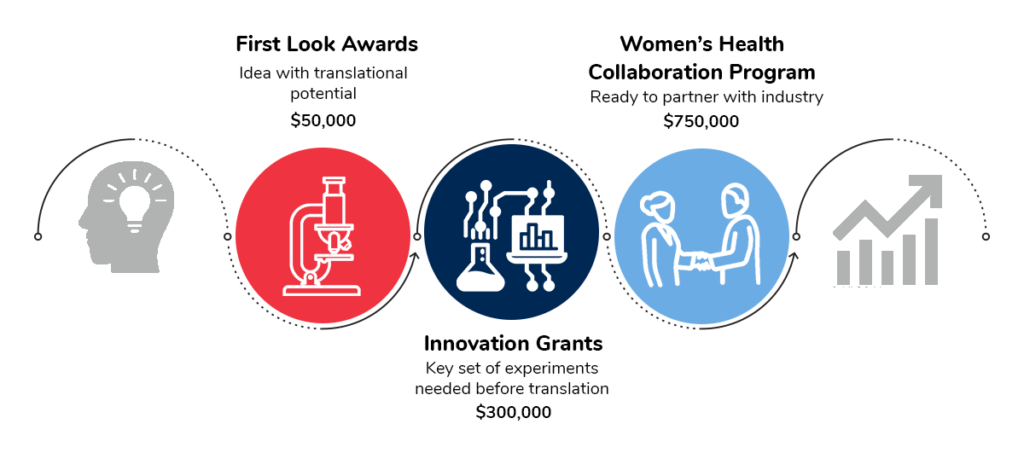A central pillar of the Massachusetts Life Sciences Center (MLSC) is Innovation, with a focus on supporting the next generation of research, technologies, entrepreneurship, and opportunities to lead. In celebration of Women’s History Month, we sat down with the Director of Industry Strategy and Investments, Katya Mantrova, M.D., Ph.D., to talk about the MLSC’s Women’s Health Initiative.
The MLSC conducted research to identify where the gaps were in the life sciences ecosystem, and where support was needed the most. This research, along with studies done by the National Institutes of Health, identified women’s health as an area that is significantly underfunded. These and other factors were catalysts for the Life Sciences Center to invest in this area and create the Women’s Health Initiative.
This initiative consists of three programs: First Look Awards, Women’s Health Innovation Grants, and the Women’s Health Collaboration Program. The MLSC wants to broaden the notion around women’s health beyond just diseases that solely affect women, but also any conditions that affect women disproportionately and differently.
The First Look Awards support early translational research at Massachusetts research institutions in collaboration with the Mary Horrigan Connors Center for Women’s Health and Gender Biology at the Brigham and Women’s Hospital. This program supports high-risk exploratory projects. The MLSC provides the funding and the Connors Center facilitates mentoring and networking opportunities.
The Women’s Health Innovation Grants focuses on projects with translational potential and preliminary supporting data, but still require a key set of proof-of-concept experiments prior to attracting a commercial partner or spinning out into a new company. The goal of this program is to have results that could be published, patented, or attract interest from industry partners.
The Women’s Health Collaboration Program supports projects that aim to improve the discovery, technical innovation, and/or analysis of datasets to answer pressing life sciences questions around women’s health. This program requires collaboration with an industry partner who will not only participate in the scientific activities, but also fund the salary for a new postdoctoral researcher.

The Women’s Health Initiative is building a pipeline of translational opportunities, supporting science at every step of the way. “It is not just up to investors to provide capital in these areas, or researchers to study these topics,” said Katya. “There is also a need for women to be represented at all stages of this pipeline.”
Partnering with women’s health experts, clinicians, academic researchers, and leaders from small and large companies, has been an intentional and impactful effort to strengthen the Center’s programming and make Massachusetts a leader in the women’s health space.
The MLSC is proud to recognize and celebrate the vital role women play in Massachusetts and our life sciences ecosystem. From the classroom to core facilities to the C-suite, and at all education and career levels in between, the Center remains steadfast in its commitment to supporting women across our life sciences ecosystem.
“Women’s History Month is a celebration of women not only just professionally, but also of their successes in and outside of work,” said Katya. “It is a time to remember the contributions women have made to science, and a reminder to celebrate us as sisters, mothers, daughters, and friends.”
